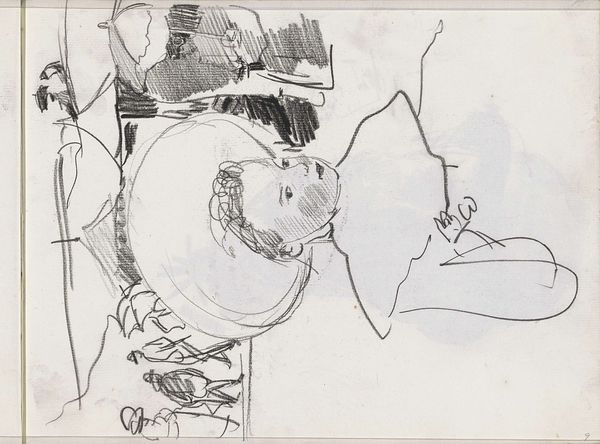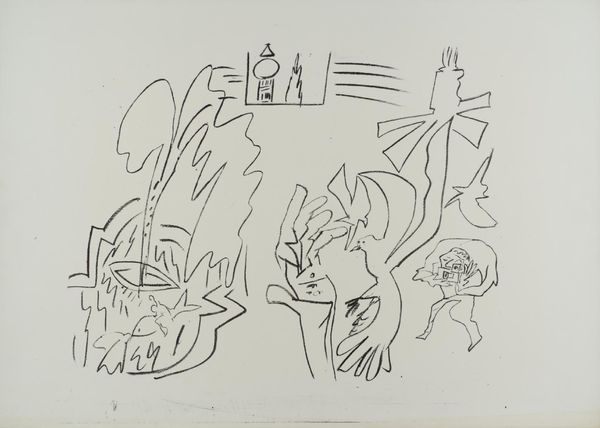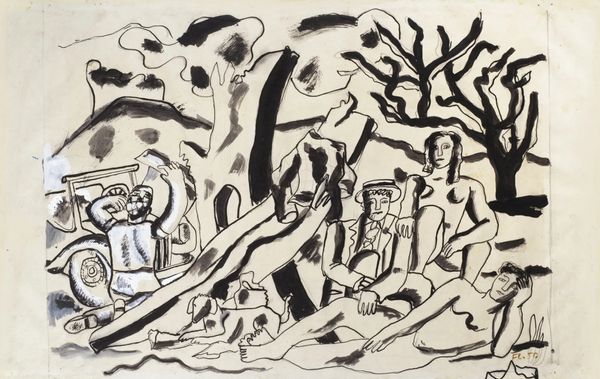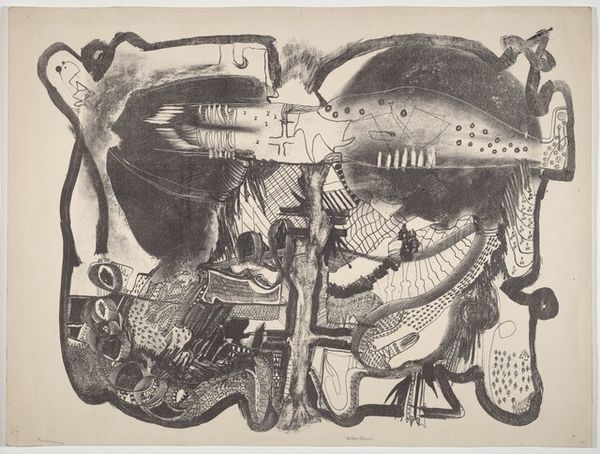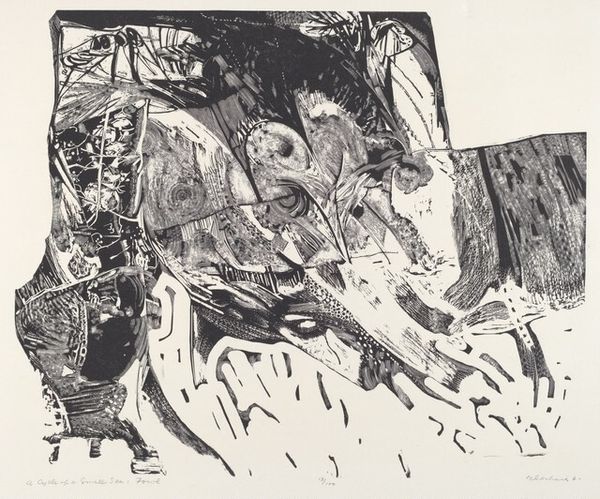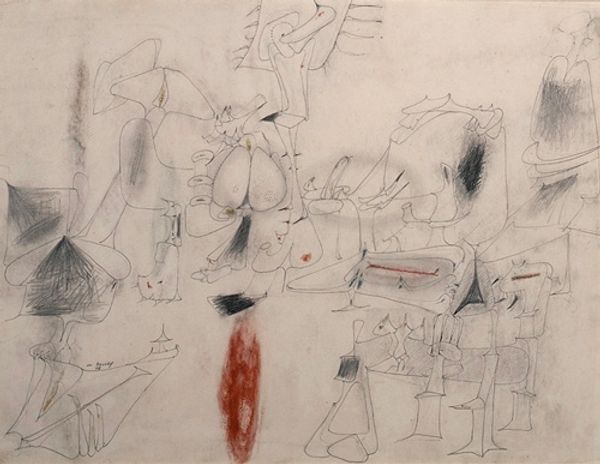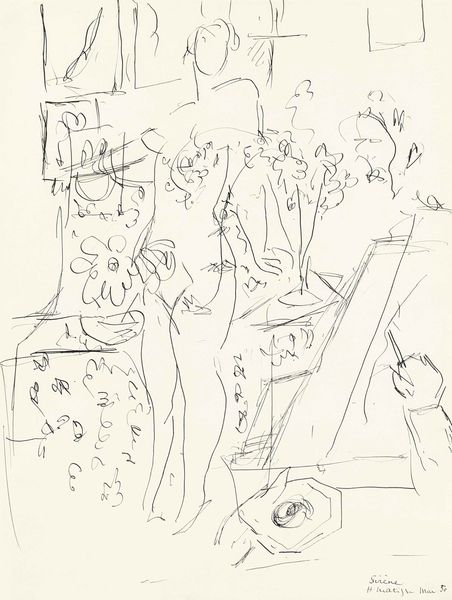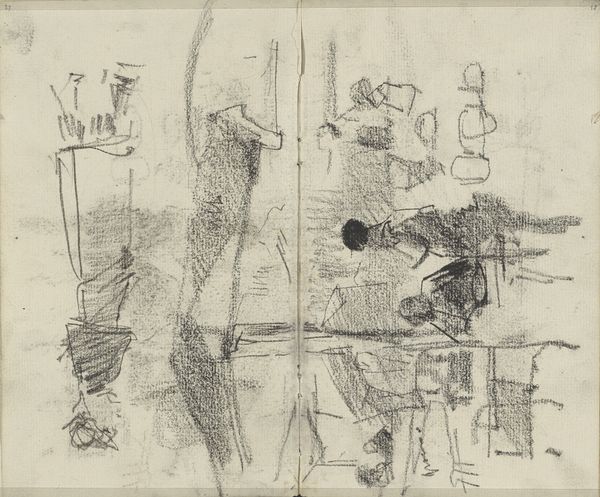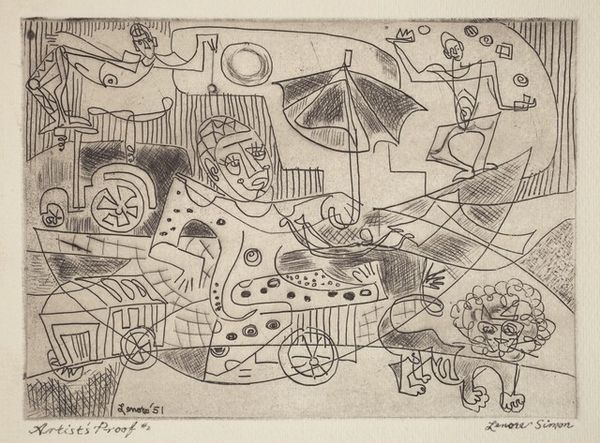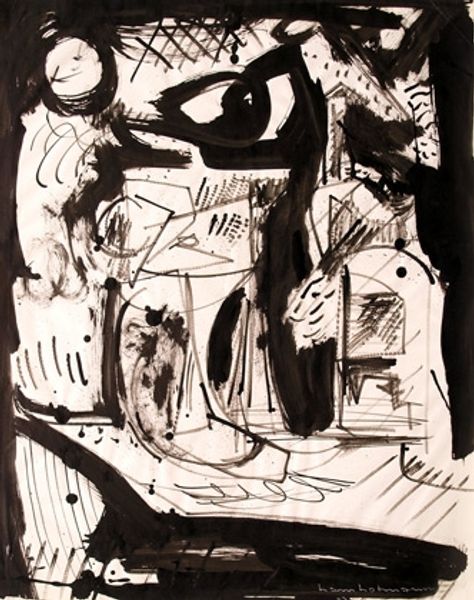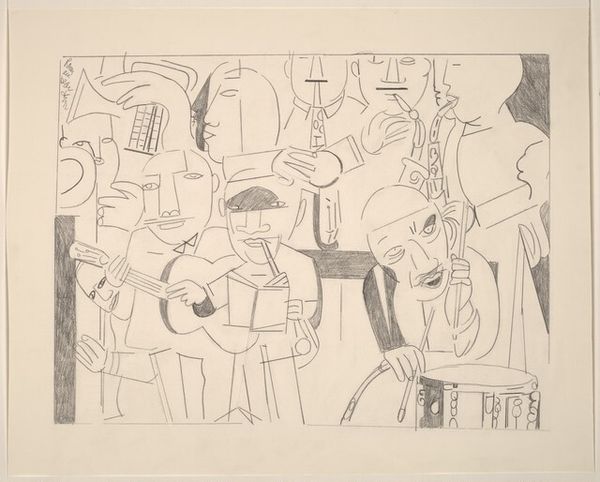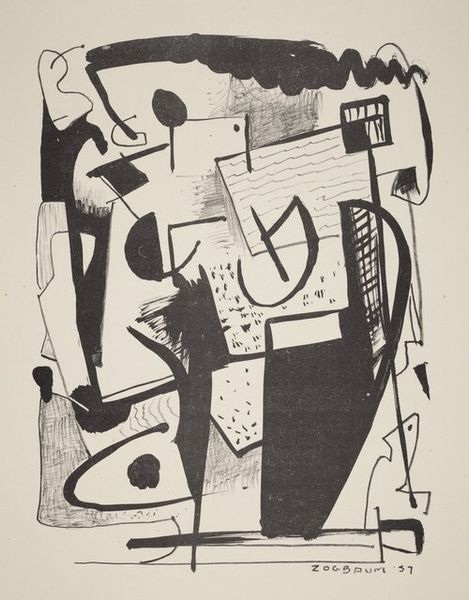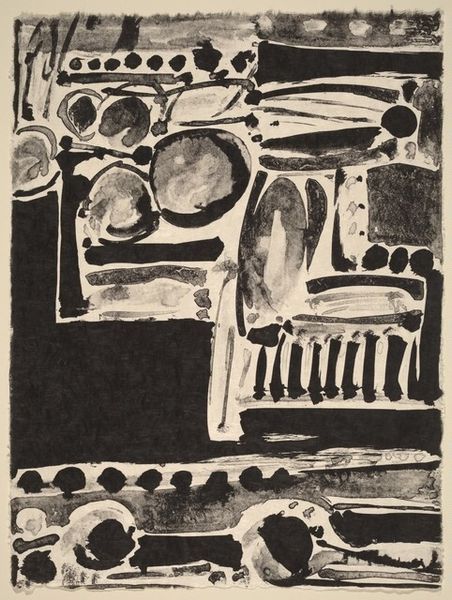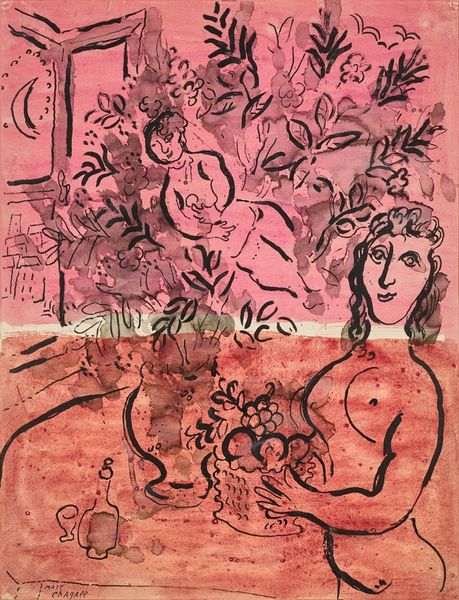
drawing, ink, pen
#
drawing
#
ink drawing
#
cobra
#
pen sketch
#
cartoon sketch
#
figuration
#
ink
#
art-informel
#
abstraction
#
line
#
pen
Copyright: Corneille,Fair Use
Curator: Looking at Corneille’s “La tranche de pastèque,” from 1967, created with pen and ink, I’m immediately drawn to how seemingly disparate abstract elements coalesce. The black and grey tones give it a somewhat melancholic, almost dystopian, feel, but it’s also playful with its cartoonish quality. What's your take on it? Editor: I am fascinated by the materiality of this piece, by the raw ink lines and washes. Given that it's part of the Art Informel movement, can you elaborate on how the material process and creation of this artwork reflect its cultural context? Curator: Absolutely. Art Informel really championed a focus on the materials themselves and the act of creation, reacting against the structured geometry of pre-war abstraction. Look at how Corneille uses ink – it's not just a medium to depict something; it's part of the artwork’s very subject. How might this embrace of raw materiality, the unrefined quality, be reflective of post-war disillusionment, maybe even anxiety surrounding industrial production? Editor: That makes a lot of sense. I hadn't considered how the emphasis on the immediate, tactile experience of making could be a direct response to broader societal changes. It’s interesting to think about how such a piece fits within an understanding of labor and materiality, and possibly critiques a consumer-driven, mass-produced society. What do you make of the 'high art' and 'craft' elements here? Curator: Exactly! The fluid lines of the ink blur those traditional boundaries, demanding we reconsider how art objects gain value, both economically and culturally. Notice how Corneille's art questions existing structures and standards of his era by making artmaking approachable. Do you think this approach influenced later art movements, too? Editor: Definitely! It's sparked so much to consider, like the artistic labor that produces an image versus mass production in the ‘60s. Curator: Precisely. It all boils down to material conditions shaping artistic expression.
Comments
No comments
Be the first to comment and join the conversation on the ultimate creative platform.
